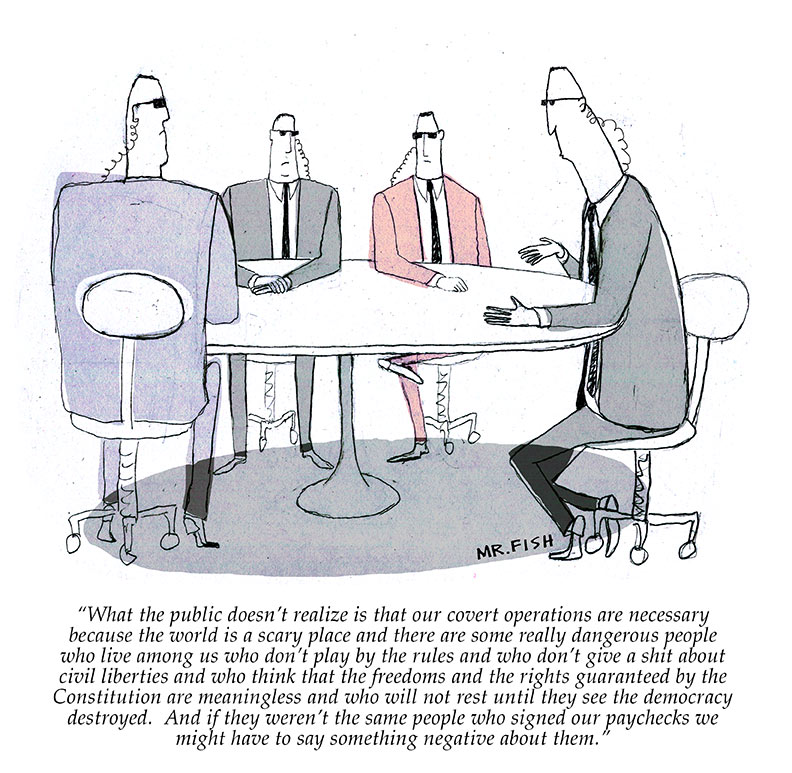The NY Times editorial board asks the right questions re domestic surveillance (emphasis mine):
For years, as the federal surveillance state grew into every corner of American society, the highest officials worked to pretend that it didn’t exist. Now that Americans are learning what really takes place behind locked doors, many officials claim they are eager to talk about it. “That’s a conversation that I welcome having,” President Obama said on Saturday. Senator Dianne Feinstein, chairwoman of the Intelligence Committee, said on Sunday that she was open to holding a public hearing on the subject now, a hearing next month, a hearing every month.
This newfound interest in openness is a little hard to take seriously, not only because of the hypocrisy involved but because neither official seems to want to do more than talk about being open. If the president wants to have a meaningful discussion, he can order his intelligence directors to explain to the public precisely how the National Security Agency’s widespread collection of domestic telephone data works. Since there’s not much point in camouflaging the program anymore, it’s time for the public to get answers to some basic questions.
Are the calls and texts of ordinary Americans mined for patterns that might put innocent people under suspicion? Why is data from every phone call collected, and not just those made by people whom the government suspects of terrorist activity? How long is the data kept, and can it be used for routine police investigations? Why was a private contractor like Edward Snowden allowed to have access to it? So far, no one at the White House seems interested in a substantive public debate.
More if you follow the link above. (My earlier thoughts here.)
Mr. Fish on the subject:

